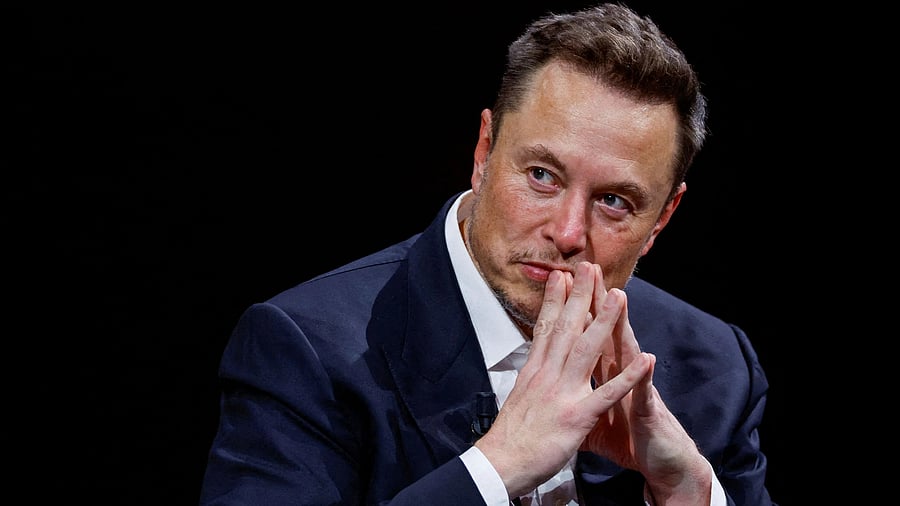
Elon Musk
Credit: Reuters Photo
By Tom Maloney
A $1 trillion pay package isn’t simple to construct: A Tesla Inc. committee met with Elon Musk 10 times, delayed the company’s annual meeting and enlisted six outside advisers before finalising the plan.
The negotiations were part of an extraordinary series of talks that led to the offer, which is designed to keep Musk at the electric vehicle maker for at least seven and a half years while he strives to meet a series of ambitious benchmarks in order to earn the full payout. During the meetings, Musk threatened to quit if he didn’t receive certain promises, while the committee wanted to end his foray into politics and secure his commitment to Tesla.
Chair Robyn Denholm and director Kathleen Wilson-Thompson, who made up Tesla’s special pay committee, met with Musk twice to understand his vision for Tesla “and what compensation framework would best motivate him,” according to the company’s proxy filing Friday, which offered an unusual level of behind-the-scenes detail.
That led them to structure the compensation agreement around benchmarks tied to four core product lines: the expansion of Tesla’s vehicle fleet, full self-driving technology, robotaxis and robots.
The remaining meetings were spent negotiating the terms of his pay package and understanding what it would take to keep him at Tesla. During the talks, Musk stressed that he had to acquire at least a 25 per cent voting interest in the company — an issue he raised on X last year — and be fully paid for his past services.
“Musk also raised the possibility that he may pursue his other interests and leave Tesla if he didn’t receive such assurances,” the filing said. “The committee further discussed and tested these positions throughout its negotiations and determined that Musk’s sentiment was genuine.”
The discussions revved up about seven months ago, after Musk’s 2018 pay package was struck down in a Delaware court. Musk was involved with President Donald Trump’s Department of Government Efficiency team at the time, while his business ventures outside of Tesla, including xAI, Neuralink and SpaceX, were winning higher and higher valuations.
It’s clear that Musk’s political activities, which investors worried were damaging Tesla’s brand, were top of mind for the committee too. It sought to “receive assurances that Musk’s involvement with the political sphere would wind down in a timely manner,” according to the filing.
It also fretted that the “race to secure top AI talent, including through nine-figure compensation packages,” put Tesla at risk of losing Musk and other artificial intelligence-focused employees who would depart alongside their CEO.
The process for determining Musk’s new compensation package ended up being so time-consuming — involving 37 meetings with counsel as well as various informal meetings with outside advisers — that the committee asked Tesla to delay its annual meeting to give it time to complete the work. Usually held in the spring, it has been scheduled for Nov. 6.
CEO Comparisons
As part of its process, the committee engaged compensation consultancy Infinite Equity to conduct an analysis of 113 other US public company CEOs. It determined how they would have fared against Musk’s 2018 “moonshot” award, which the new pay package is largely based on, and the 12 milestones it required Tesla to hit.
The analysis found none of the CEOs would have earned more than three award tranches in the five-year period, during which Musk earned all 12, with 79 per cent achieving none of the milestones. If the timeframe was extended to seven and a half years, only Nvidia Corp. CEO Jensen Huang would have achieved all 12 tranches, the analysis concluded.
The directors also considered engaging an expert to determine the difficulty of the new pay award’s market capitalisation milestones, which range from $2 trillion to $8.5 trillion. But after reaching out to investment banks and financial advisory services, it determined “none could be fully independent due to conflicts of interest” or were otherwise unable to provide useful input “since investment banks are generally not in the business of providing long-term assessments on companies like Tesla, which is simultaneously pursuing business lines across various sectors.”
Unlike his 2018 pay package, the new proposal relies on restricted shares rather than options to compensate Musk. These give him additional voting rights as soon as he earns them, rather than waiting until they vest — a key step in getting him toward the 25 per cent control he has threatened to quit over.
The committee seemed aware that the eye-watering $1 trillion value of the package would come under focus. “Some critics have argued that no further compensation should be paid to Musk as he is already the wealthiest person in the world,” and his current stake in the company should be sufficient incentive, it wrote.
Musk’s existing holdings, including his 2018 package, would be worth more than $1.5 trillion if the company met the latest market capitalisation goals. He is currently worth $377.7 billion, according to the Bloomberg Billionaires Index.
“We believe that these critiques fundamentally misunderstand Musk and his motivations,” the committee said.